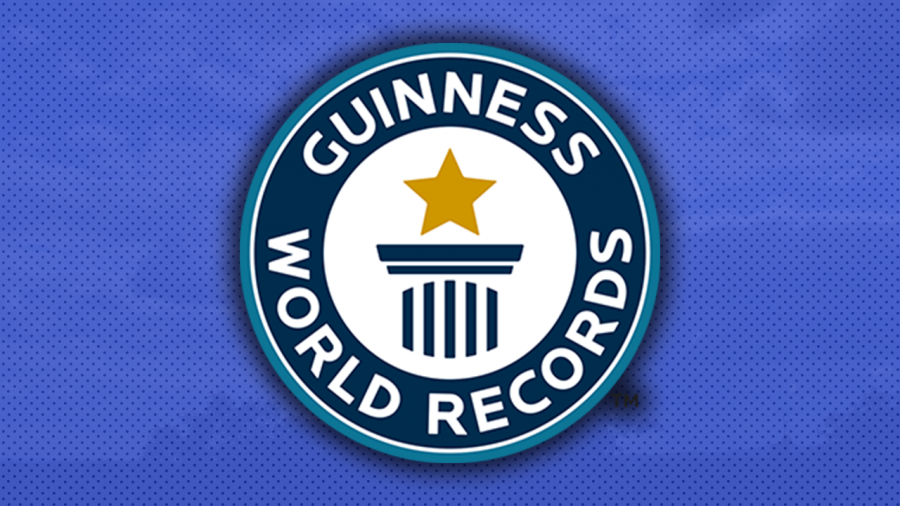Guinness World Records: From faithful to fraudulent
October 6, 2020
By Brayden Suvari
Guinness World Records is a name that everyone can recognize. Before the age of computers, the only way to know about who the world’s tallest man was or who had the longest fingernails was to peruse the Guinness Book of World Records.
When I was a kid, I craved books littered with bits of trivia such as the ones contained in the Guinness Book, and that is why it was one of the few books I regularly perused.
Guinness was the real deal back in the day, and it was acknowledged as such for the valid reason because it seemed like Guinness really cared about what it was publishing.
For a lot of people, it was even a reliable source of information, considering you’d have a hard time finding all that info anywhere else. That was Guinness’ job: doing the research so you didn’t have to, and it was a very helpful and commendable job to be doing back then.
However, Guinness undeniably changed when it received a decline in book sales during the internet’s initial surge in popularity. Being a for-profit organization, Guinness seemed to have had no issues with shamelessly and unapologetically selling out its devoted audience. With the age of the internet inbound, Guinness was more than willing to start prioritizing marketability over credibility.
Guinness currently purports itself to be “the world’s unrivalled authority on record-breaking achievement.” This is demonstrably false.
There is no single universal authority on maintaining records, but there are respective well-established arbiters in place for records in their own fields. For example, accomplishments in world athletics are adjudicated very scrupulously only by those who are qualified to do so.
The message Guinness is conveying here is equivalent to if Ripley’s Believe It or Not!, a trivia publication, started declaring itself an encyclopedia. The organization is elevating itself to a title it has not earned, and by doing so, it is disrespecting those whose entire lives are dedicated to honoring that title. Guinness was never an authority on any of the records it has published, and it should have acknowledged that instead of talking itself up to be bigger than it really is.
Thankfully, Guinness is not attempting to directly compete in any way with respected authorities such as world athletics. Instead, it is now holding competitions for records in tasks of increasingly questionable importance.
For these, Guinness stops being the middleman and takes on the role of the adjudicator. It seems the organization is making such a laughable attempt to be an arbiter of anything that it has now decided to stoop as low as to recognize achievements as meaningless as managing to balance a shopping cart on someone’s chin for a minute and a half.
Guinness will also charge extra for those who want their records recognized in style. Premium benefits, such as speedy recognition of a record and a live appearance from a Guinness adjudicator, start at $800. What Guinness is doing is using its fake prestige to trick its gullible followers into purchasing what is not much more than bragging rights.
Guinness has additionally become a branded experience, requiring companies who want their records recognized to purchase thousand-dollar premium packages, as well as pay for licenses to use their brand.
People may try to make the argument that Guinness is simply doing what it needs to do as a company by making the recognition of records into a branded experience and that there’s nothing wrong with that.
However, Guinness’ status as a brand is a far cry from what should be acceptable in marketing, as it is uniquely a brand that specialises in recognizing facts.
Newspapers don’t make brand deals, nor does any major commercial brand claim to be a reliable source of information. Guinness’ profitability solely stems from deceptively feeding into many people’s false beliefs of it being the one and only undisputed authority on all world records; for many, Guinness and world records are rendered synonymous.
By making brand licensing an integral part of the record recognition process, Guinness is facilitating the corporatization of not just publishing, but acknowledging facts, and this particular display of power should not be tolerated as normal or ethical by any reasonable measure.
Guinness makes the biggest fool of itself when it makes demands like it did to the European Speedrunner Assembly (ESA) earlier this year, where it proposed a brand deal worth £15K plus cost of travel so an adjudicator could attend ESA’s event and recognize a potential world record time in Super Mario 64 that was later achieved during the event.
Leave it to Guinness to make recognizing a legitimate record a brand deal.
Guinness adjudicators would serve no purpose at ESA’s event, as there already were adjudicators present that were loads more qualified than Guinness would ever be to grant such a record. Guinness should’ve done what it had always done in its book days: trust the experts. Instead, it is now demanding the experts money so they can be told that Guinness thinks it can do a better job.
With Guinness, it is pay to win, and despite the fact that Guinness wasn’t the one to click the stopwatch on Usain Bolt’s 100-meter dash, Guinness is still boasting a facade of being the authority on all world records, and it seems an alarming amount of people are still convinced.
With each increasingly bizarre pointless record added every day, it’s about time that this fraud of a for-profit organization gets called out for what it is.
This book is being put back on the shelf.
Works Cited
Guinness World Records. “Frequently Asked Questions.” Guinness World Records, 2017, www.guinnessworldrecords.com/records/faqs.
Guinness World Records. “Apply to Set or Break a Record.” Guinness World Records, 2017, www.guinnessworldrecords.com/records/apply-to-set-or-break-a-record.
Edwards, Phil. “Guinness World Records Is No Longer Just a Book Company. It’s a Branded Experience.” Vox, Vox Media, 6 Mar. 2015, www.vox.com/2015/3/6/8157639/guinness-world-record-business.
Paynter, Ben. “For a Fee, Guinness Will Help You Set a New World Record.” Bloomberg, Bloomberg Business, 20 Sept. 2013, www.bloomberg.com/news/articles/2013-09-19/for-a-fee-guinness-will-help-you-set-a-new-world-record.
Bell, Andrew. “Re: Verification of a supposed correspondence.” Received by Brayden Suvari, 24 Sept. 2020. Email inquiry.





Amy Sumarinas • Mar 14, 2022 at 3:47 pm
Reading this, it came to mind how the former Philippine President Ferdinand E. Matcos earned the title THE GREATEST ROBBER IN THE WORLD. I.wonder who applied for this title to be put in Guiness. Obviously, people behind this are the same people who were behind in changing the school history books in the Philippines, his political nemeses.. Did money exchange hands? The family of the late president ought to sue Guiness for this.
Ben Kleschinsky • Aug 20, 2021 at 4:37 am
I searched this out to see if anyone else felt the same way as I do, and I couldn’t agree more with what you have written. Guinness makes up contests in order to fill their books with new records and make sales. It’s become complete entertainment and marketing for book sales and they have lost all credibility. Sort of the way the Olympics are going if they keep increasing the amount of gold medals handed out when they keep adding new sports.
Nope Nothanks • Apr 27, 2021 at 6:05 pm
Nicely written. It’s only a matter of time before everyone exposes the egregious nature of this former publication turned explioting machine.